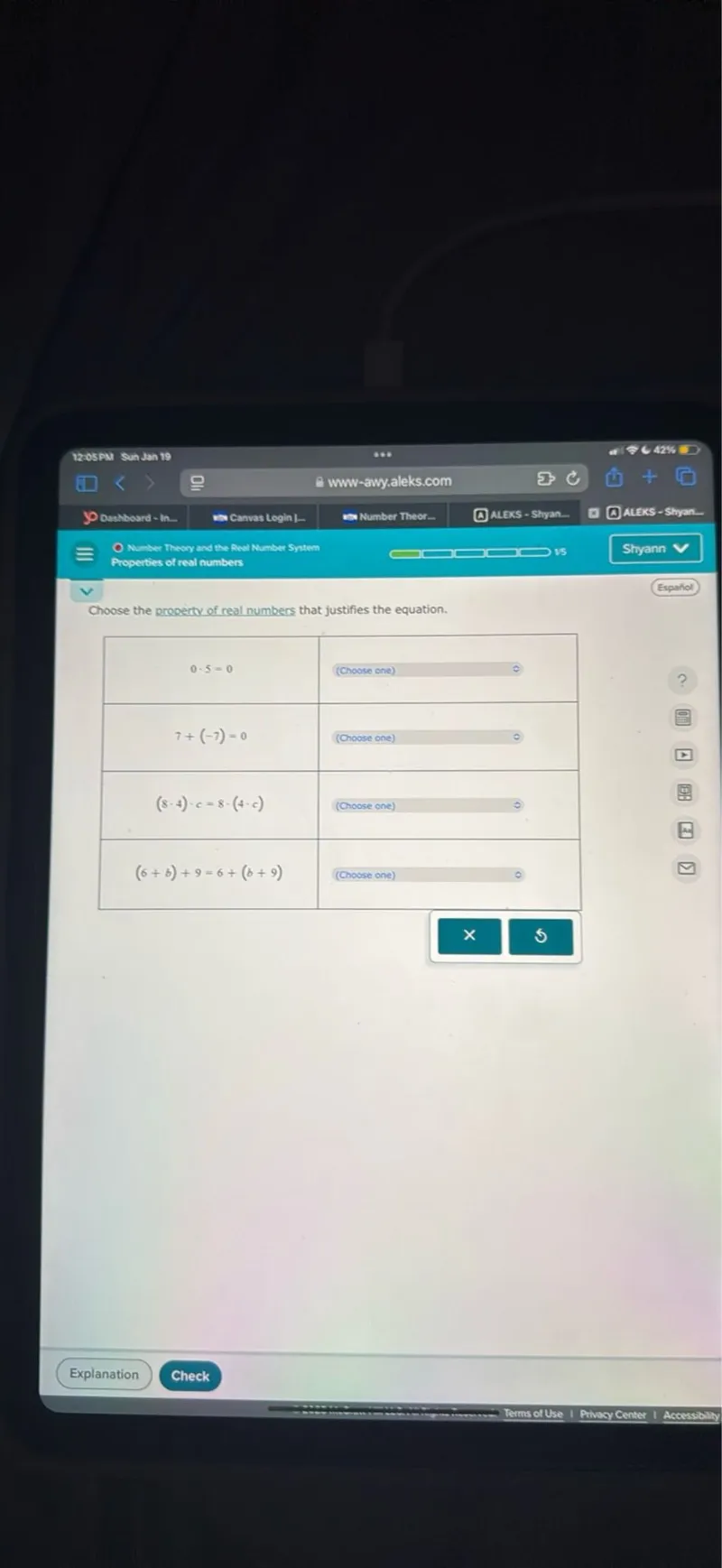Questions: Number Theory and the Real Number System Properties of real numbers Choose the property of real numbers that justifies the equation. 0 · 5 = 0 Choose one 7 + (-7) = 0 Choose one (s · t) · c = s · (t · c) Choose one (6 + 8) + 9 = 6 + (8 + 9) Choose one Explanation Check

Transcript text: Number Theory and the Real Number System
Properties of real numbers
Choose the property of real numbers that justifies the equation.
0 · 5 = 0 | Choose one
7 + (-7) = 0 | Choose one
(s · t) · c = s · (t · c) | Choose one
(6 + 8) + 9 = 6 + (8 + 9) | Choose one
Explanation Check





